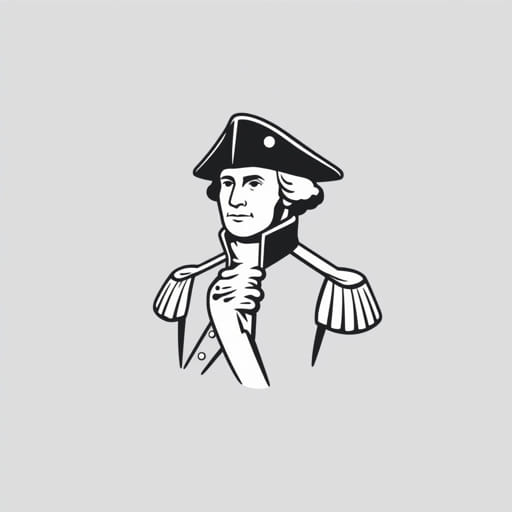‘To His Excellency General Washington’ is a renowned poem written by Phillis Wheatley, the first African American woman to publish a book of poetry. This poem stands as a powerful tribute to George Washington, the commander-in-chief of the Continental Army during the American Revolutionary War and the first President of the United States. Wheatley’s work not only praises Washington’s leadership and valor but also reflects the hopes and ideals of a young nation fighting for freedom and independence. The poem is significant for its historical context, literary merit, and symbolic resonance in American history.
Background of Phillis Wheatley and the Poem
Phillis Wheatley’s Life and Education
Phillis Wheatley was born around 1753 in West Africa and was brought to America as an enslaved child. Purchased by the Wheatley family in Boston, she received an unusual education for an African American woman at that time, learning to read and write in English and studying classical literature and the Bible. By the age of 14, Wheatley began writing poetry, and her works quickly gained attention for their skillful use of classical forms and themes.
The Composition and Publication of ‘To His Excellency General Washington’
Written in 1775, during the early stages of the American Revolution, the poem ‘To His Excellency General Washington’ was Wheatley’s public salute to George Washington. It was published in London in 1776, symbolizing transatlantic support for the American cause. The poem blends classical references with the urgent spirit of revolution, highlighting the poet’s hope that Washington’s leadership would secure liberty and justice for the colonies.
Analysis of the Poem’s Themes
Celebration of Leadership and Heroism
Throughout the poem, Wheatley portrays Washington as a heroic figure chosen by divine providence. She calls him Columbia’s Defender, emphasizing his role as the protector of American freedom. The poem praises his courage, wisdom, and commitment to the revolutionary cause, portraying him as a symbol of strength and hope.
The Influence of Classical and Religious Imagery
Wheatley’s poem draws heavily on classical allusions, invoking the gods and muses of ancient mythology to elevate Washington’s status. She uses imagery of fame, glory, and divine favor to frame his mission as righteous and noble. Additionally, religious language underscores the belief that the struggle for independence has moral and spiritual significance, suggesting that God supports the American fight for freedom.
The Aspirations of a New Nation
Beyond personal praise for Washington, the poem expresses the broader ideals of the American Revolution liberty, justice, and national identity. The rude, unlettered sons of the soil are envisioned as future citizens who will enjoy freedom thanks to the sacrifices of their leaders. Wheatley’s hopeful tone reflects the optimism and patriotism of the era.
Historical Significance
The Role of Phillis Wheatley as an African American Poet
Phillis Wheatley’s authorship of this poem was groundbreaking. As an African American woman writing in the 18th century, her literary achievements challenged prevailing racist and sexist notions. Her ability to engage with political themes and classical forms earned her recognition from prominent figures and helped to expand the cultural conversation about liberty and equality.
The Poem’s Impact on Public Perception of Washington
At a time when the American Revolution was uncertain, Wheatley’s poem contributed to the heroic mythos surrounding George Washington. By portraying him as a divinely inspired leader, the poem bolstered morale and encouraged unity among the colonists. It also introduced Washington to audiences abroad as a figure of virtue and strength, helping to gather international support.
Literary Style and Structure
Use of Heroic Couplets
The poem is composed in heroic couplets pairs of rhymed lines in iambic pentameter a popular form in 18th-century English poetry. This structured form lends the poem a rhythmic dignity and classical elegance, befitting its subject matter and the formal tone of praise.
Rhetorical Devices and Tone
Wheatley employs a variety of rhetorical techniques, including apostrophe, metaphor, and allusion. The poem’s tone is reverent and celebratory, but also carries a sense of urgency and hope. These elements work together to create a piece that is both a tribute to Washington and a call to action for the American people.
Legacy of ‘To His Excellency General Washington’
Influence on American Literature and History
‘To His Excellency General Washington’ remains an important work in American literary history. It is studied for its artistic merit as well as its historical importance, providing insight into early American patriotism and the role of African Americans in shaping national identity. The poem stands as a testament to the intersection of literature and politics in the formation of the United States.
Phillis Wheatley’s Enduring Symbolism
Wheatley herself has become a symbol of intellectual achievement and resistance against oppression. Her poem dedicated to Washington highlights how literature can serve as a bridge across social and racial divides, affirming shared values and aspirations. The poem continues to inspire discussions about freedom, equality, and the power of voice.
Summary Points
- Phillis Wheatley, an African American poet, wrote ‘To His Excellency General Washington’ in 1775.
- The poem praises George Washington’s leadership during the American Revolution.
- It uses classical and religious imagery to elevate Washington’s role.
- The poem reflects the hopes and ideals of a nascent American nation.
- Wheatley’s authorship challenged racial and gender stereotypes of her time.
- The poem helped shape public perception of Washington as a heroic figure.
- Its literary style employs heroic couplets and rhetorical devices for impact.
- The poem remains significant in American literature and history.
‘To His Excellency General Washington’ is more than just a poem; it is a powerful historical document that captures the spirit of a revolutionary era through the voice of a remarkable African American woman. Phillis Wheatley’s tribute to George Washington combines artistry and political fervor to celebrate leadership, liberty, and hope. The poem continues to resonate as a symbol of resilience and the enduring quest for freedom in American culture.
